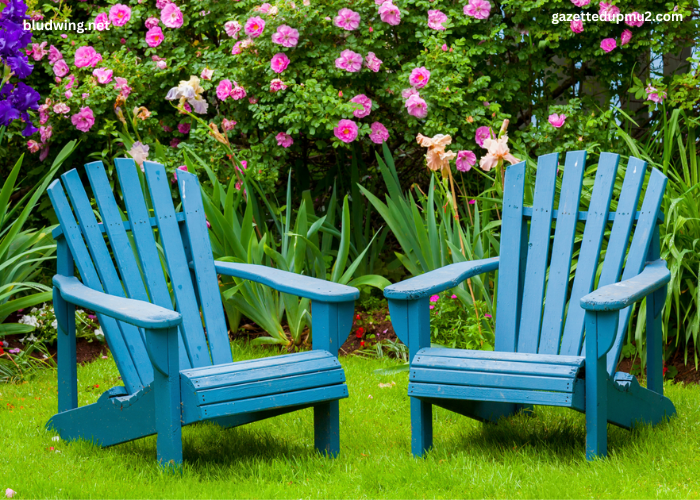As summer arrives in Concord and Mooresville, keeping your lawn green and healthy becomes a challenging task. The sweltering heat, coupled with long dry spells, can quickly turn a vibrant lawn into a parched, yellowing patch. However, with the right lawn care Concord and Mooresville strategies, you can beat the heat and maintain a lush yard all season long. In this post, we’ll cover essential summer lawn care tips, including watering techniques, fertilization strategies, and pest control methods to ensure your lawn thrives during the hottest months.
1. Watering Wisely: Timing is Key
One of the biggest challenges during the summer is ensuring your lawn gets enough water without overdoing it. Watering too much or too little can both lead to problems. The key is consistency and proper timing.
- Water Early in the Morning: To avoid water evaporation caused by the heat of the day, water your lawn early in the morning. The ideal time is between 6 a.m. and 10 a.m., when temperatures are cooler, and winds are calm. This gives the grass time to absorb the water and reduce the risk of fungal diseases that can occur if the lawn stays wet overnight.
- Deep Watering Once or Twice a Week: Instead of lightly watering your lawn every day, opt for a deep watering session once or twice a week. By promoting deeper root growth in the soil, deep watering your grass increases its resistance to drought. Aim for about 1 to 1.5 inches of water per week, including rainfall, to ensure your lawn gets the hydration it needs to withstand the heat.
- Check for Runoff: If you notice water running off your lawn into the street or driveway, you’re watering too fast. Use sprinklers that provide a slow, steady flow to ensure the water soaks into the soil rather than running off.
2. Mowing: Don’t Cut Too Short
Mowing is a regular part of lawn care, but during the summer, you’ll want to adjust your mowing practices to help your lawn survive the heat.
- Raise the Mower Blades: Grass that’s cut too short can become stressed in the summer heat. By leaving your grass slightly taller—around 3 to 4 inches—you help shade the soil and reduce water loss due to evaporation. Taller grass also encourages deeper root growth, which is essential for drought resistance.
- Keep Your Blades Sharp: Dull mower blades can tear the grass, leaving jagged edges that can turn brown and invite disease. Sharpen your mower blades regularly to ensure clean cuts that keep your lawn looking neat and healthy.
- Don’t Bag the Clippings: Mulching your lawn with grass clippings can help retain moisture in the soil and provide nutrients as the clippings break down. This natural process contributes to a healthier lawn without the need for additional fertilizers.
3. Fertilizing: Boost Your Lawn’s Nutrients
Fertilizing your lawn properly can make all the difference in how well it handles the summer heat. However, it’s important to fertilize wisely, as too much fertilizer can harm your lawn during hot weather.
- Use a Slow-Release Fertilizer: Opt for a slow-release fertilizer that provides nutrients gradually over time. This prevents a sudden burst of growth that can stress your lawn in the heat. A balanced fertilizer with nitrogen, phosphorus, and potassium will keep your grass green and strong throughout the summer.
- Don’t Over-Fertilize: Too much fertilizer, especially high-nitrogen fertilizers, can burn your lawn in hot weather. Follow the instructions carefully and avoid applying fertilizer during the hottest parts of the day. Early morning or late afternoon is the best time to fertilize.
- Consider Organic Options: Organic fertilizers are a great way to nourish your lawn without the risk of chemical burn. Compost or organic lawn food releases nutrients slowly and helps improve soil health over time.
We Provide the Lawn Care Harrisburg PA Residents Love.
4. Pest Control: Keep Bugs at Bay
Summertime often brings an increase in lawn pests, which can damage your grass if left unchecked. Here are a few common pests to watch for and how to deal with them.
- Grubs: These beetle larvae feed on grass roots, causing brown patches in your lawn. To check for grubs, pull up a small section of grass and look for white, C-shaped larvae. If you find more than five per square foot, it’s time to treat your lawn with a grub control product.
- Chinch Bugs: These tiny insects suck the sap from grass blades, causing the grass to turn yellow and die. Chinch bugs thrive in hot, dry conditions, so maintaining proper moisture in your lawn is a good preventive measure. Insecticidal treatments can help if the infestation is severe.
- Armyworms: These caterpillars can quickly devour large areas of your lawn, leaving behind bare patches. Regular mowing and dethatching can help prevent armyworm infestations. If you notice damage, treating your lawn with a targeted insecticide may be necessary.
Maintaining a healthy lawn in the summer requires consistent care and attention, but the effort is worth it. By following these tips, you’ll be able to enjoy a lush, green yard all summer long, even in the hottest weather.
5. Local Expertise: Lawn Care Services in Concord and Mooresville
If maintaining your lawn during the summer heat feels overwhelming, professional lawn care services can be a great solution. Expert lawn care providers in Concord and Mooresville understand the unique challenges of the local climate and can tailor their services to your lawn’s specific needs. From proper fertilization and watering schedules to pest control and mowing, they’ll help keep your lawn in top condition throughout the summer months.
In conclusion, effective lawn care Mooresville and Concord during the summer involves proper watering, mindful mowing, smart fertilization, and vigilant pest control. Whether you’re doing it yourself or seeking professional help, keeping your lawn healthy through the hot months in Concord and Mooresville will give you a beautiful outdoor space to enjoy all summer long.
By following these practices, you’ll ensure that your lawn not only survives the heat but thrives in it.





